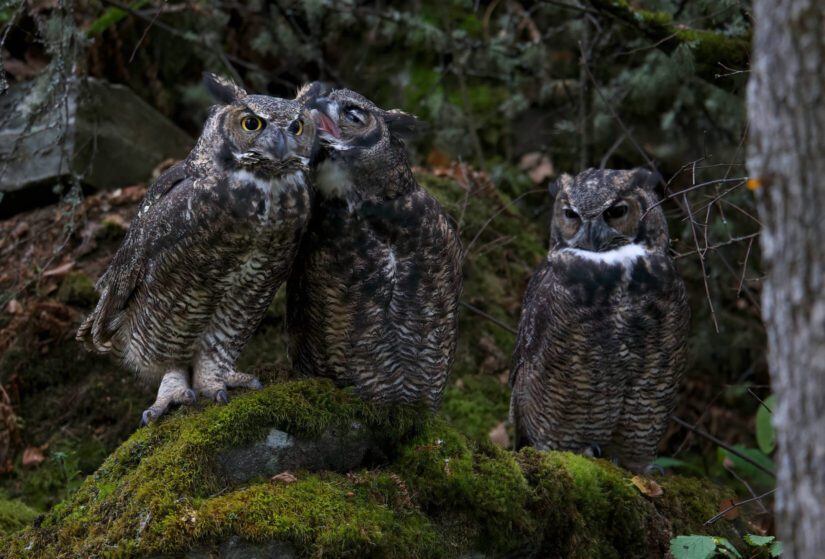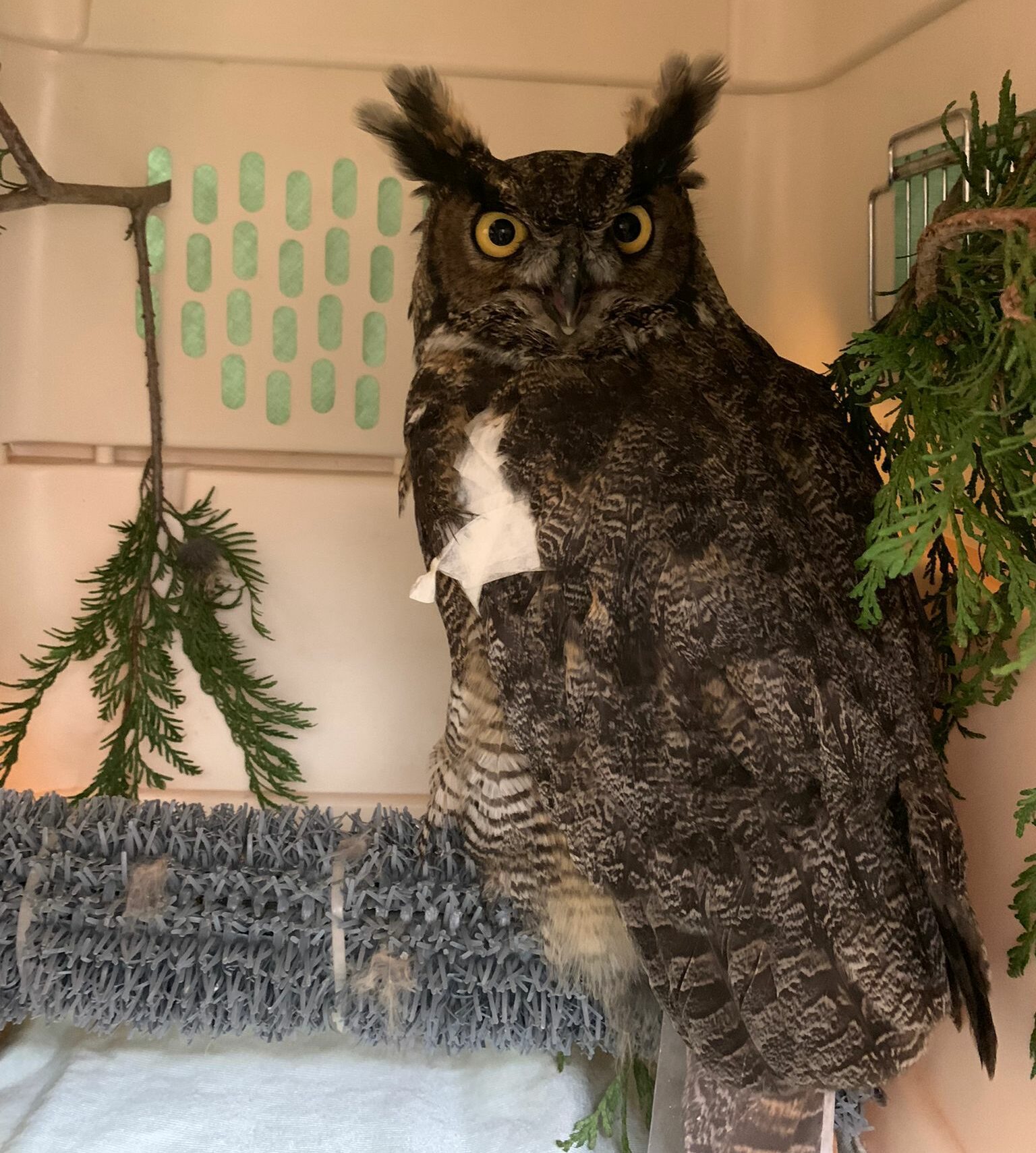With the transition to autumn comes dwindling daylight hours, which typically signals an increase in owl patients at the BC SPCA’s Wild Animal Rehabilitation Centre (Wild ARC). The higher number of these night-time hunters needing care showcases how dangerous this time of year can be for nocturnal wildlife.

This is a very risky time for owls, who like to hunt in low light. “As the days get shorter and people commute to and from work in the dark, nocturnal animals like owls are also active at these times, hunting near roadsides for small rodents like mice and shrews,” says BC SPCA manager, wild animal welfare Dr. Andrea Wallace.
“As a result, they are at higher risk from vehicle collisions during this time of year, and we encourage those on the road to exercise extra caution when driving.”
It’s an effect that Wild ARC continues to see year after year. Last year, a great horned owl was found near Sooke on the highway at dusk. It’s very likely the owl was struck by a car while foraging for food. This beautiful bird suffered a broken wing, and took weeks to fully recover.
Scraps of food littered on the side of the road can attract rodents, which in turn attracts birds hunting them for food. Animals can easily become habituated to learn that roadways are food sources, further increasing the risk of collision. To prevent injuries to wild animals and help keep roads safe, make sure that all trash, recyclables and compost are disposed of properly.
Here are some further steps drivers can take to avoid collisions with wildlife:
- Pay attention to wildlife warning signs, as these do indicate wildlife collision hot spots;
- Do not toss food scraps, such as apple cores or banana peels, on the side of the road;
- Stay within the recommended speed limit. Reduce your speed especially in areas of limited visibility and at dawn and dusk when there is reduced light and animals are more active;
- Keep an eye out for shining eyes on the side of the road, highlighted by your headlights;
- Be vigilant and scan the road shoulders for animals, particularly at dawn and dusk;
- Watch for flashing brake lights on the car ahead, possibly indicating wildlife on the road; and
- Do not honk or flash your lights at wildlife – rather than warning them away, this will only startle them or potentially cause them to panic and bolt into further danger.

